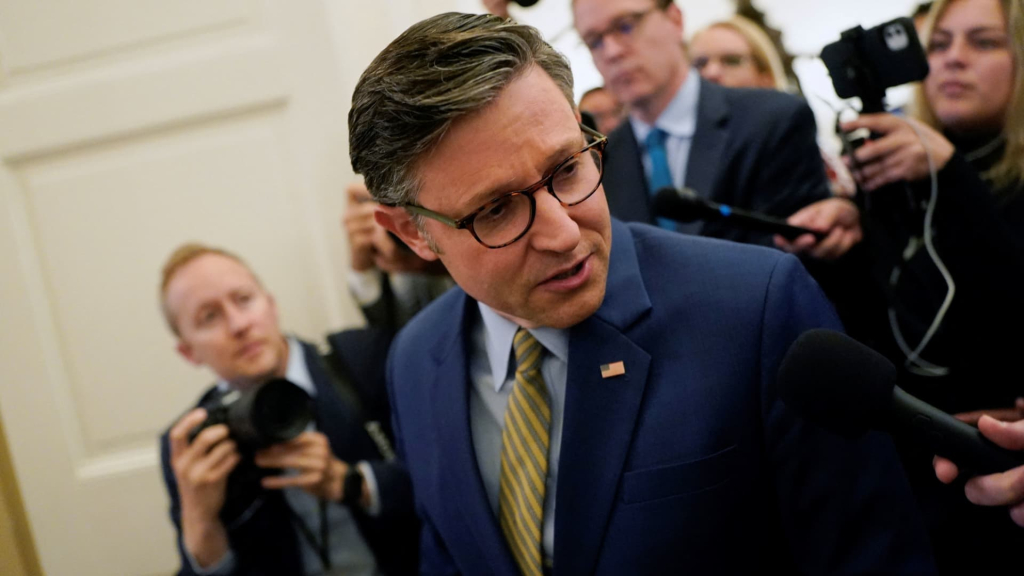House Speaker Mike Johnson expressed enthusiasm on Sunday regarding the approval of what he termed a “big, beautiful bill,” identifying it as “the largest cut in spending in at least 30 years, and arguably of all time.” He dismissed critiques suggesting that the legislation would result in increased federal deficits.
In its recent analysis, the nonpartisan Congressional Budget Office indicated that the tax measures included in this extensive package could lead to a deficit increase of $3.8 trillion over the next decade.
However, GOP senators, including prominent fiscal conservatives like Senator Ron Johnson from Wisconsin, have raised concerns about the potential for escalated deficits stemming from the House bill, suggesting modifications may be necessary.
Countering these concerns, Speaker Johnson rejected the CBO’s findings and other projections of significant deficit increases, labeling them as “dramatically overstated.”
He asserted that the bill would stimulate economic growth, enhancing wages and empowering entrepreneurs and job creators to expand their businesses. He highlighted incentives for reshoring U.S. manufacturing as a key benefit of the package.
“All these elements will converge to accelerate economic growth beyond what current projections suggest, so we’re not inclined to accept those forecasts,” Johnson stated during an appearance on CNN’s ‘State of the Union.’
This development comes as major stock indices experienced declines the previous Wednesday, attributed to worries that the passing of the spending proposal may escalate federal deficits.
The comprehensive tax cut and spending plan narrowly cleared the House last week after extensive debate and pressure from President Donald Trump to expedite the bill’s passage.
Trump personally visited Capitol Hill to advocate for House Republicans’ support for the legislation, which now awaits deliberation in the Senate, where Republican lawmakers have indicated they intend to introduce amendments.
Speaker Johnson has urged Senate Republicans to limit modifications to the proposal, emphasizing the fragile balance and equilibrium achieved over a prolonged negotiation process.
“We must pass it one more time to confirm their changes in the House. This balance is delicate, and it’s best not to interfere too much,” Johnson elaborated.
With House Republicans maintaining a slim majority, the Speaker can only afford to lose a few votes to ensure the measure passes along party lines.


























